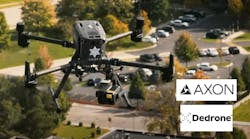VIENNA, Austria_Business leaders can help authorities thwart terrorist attacks and undermine efforts to recruit and bankroll extremists, experts said Thursday at a conference on tapping the private sector to make the world "inhospitable to terrorism."
Counterterrorism specialists said the business community can provide jobs to disaffected people, making them less receptive to extremists looking for recruits. Joint efforts with government also can improve the response to natural disasters as well as attacks, they said.
"Private sector efforts can empower individuals and weaken the ability of terrorists to exploit political, economic and social weaknesses that aid in radicalization and recruitment," said Frank Urbancic, the U.S. State Department's acting coordinator for counterterrorism.
Focusing on areas where there has been conflict or where terrorists are known to operate "offers alternatives to employment in terrorist movements and offers decommissioned soldiers and irregulars routes to return to civilian life," Urbancic said.
The closed-door conference, sponsored by the 56-nation Organization for Security and Cooperation in Europe, follows a U.S.-Russian initiative to develop "public-private partnerships" between the authorities and civil society.
Anatoly Safonov, the Kremlin's top official in charge of counterterrorism cooperation, was among participants at the workshop, which runs through Friday.
"Given the nature and scale of today's constantly evolving terrorist threat, states alone cannot successfully counter terrorism," meeting organizers said in a statement.
Public-private initiatives designed to counter the global terrorist threat also help countries respond quickly and effectively to natural disasters such as earthquakes, said Jan Mares, business liaison director with the private sector office of the U.S. Department of Homeland Security.
Since the 9/11 attacks, the United States has channeled several billion dollars (euros) through public-private alliances that aim to stimulate economic growth, develop businesses and expand access to education for what Urbancic called "exactly the same population that is being targeted by the terrorist leaders as recruits."
Ford Motor Co., retail giant Target Corp. and electronics maker Motorola Inc. are among more than 5,800 U.S. businesses that have formed partnerships with the U.S. Customs and Border Protection agency to make cargo containers more secure, Urbancic said.
Some European governments also have teamed up with the private sector to create jobs for new immigrants and help them learn languages so they don't feel marginalized or embittered, he said.
"When we carry out successful development projects and help local populations with jobs and an economic future, we make it more difficult for the enemy to operate," Urbancic said.
___
On the Net:
OSCE, http://www.osce.org

